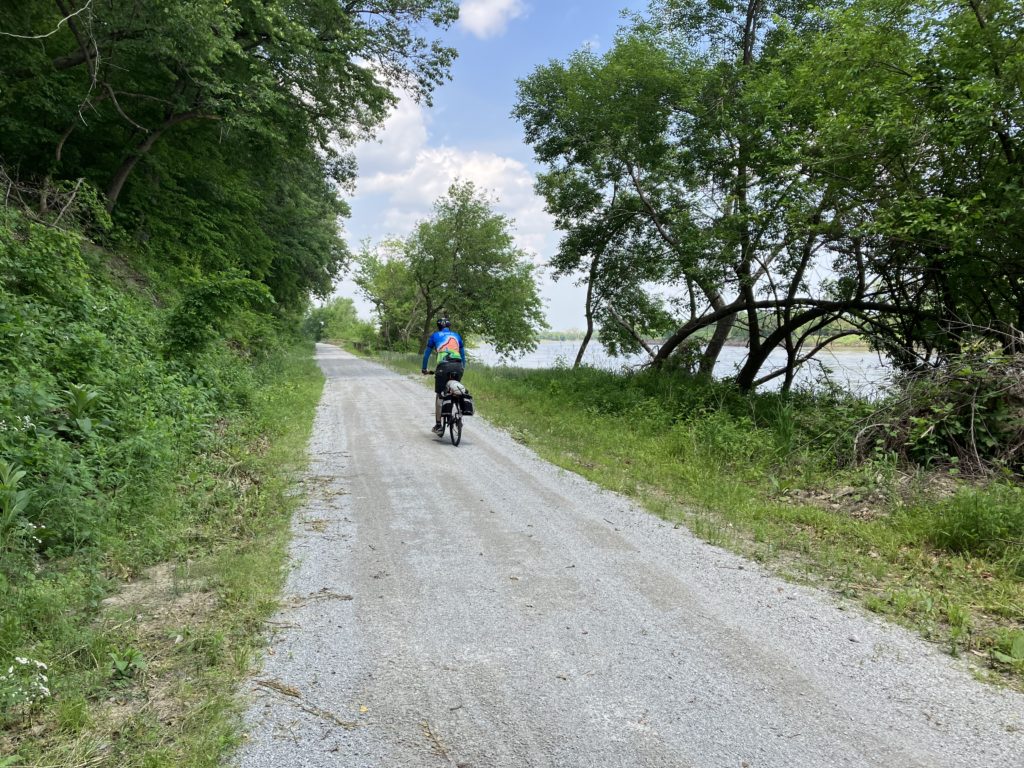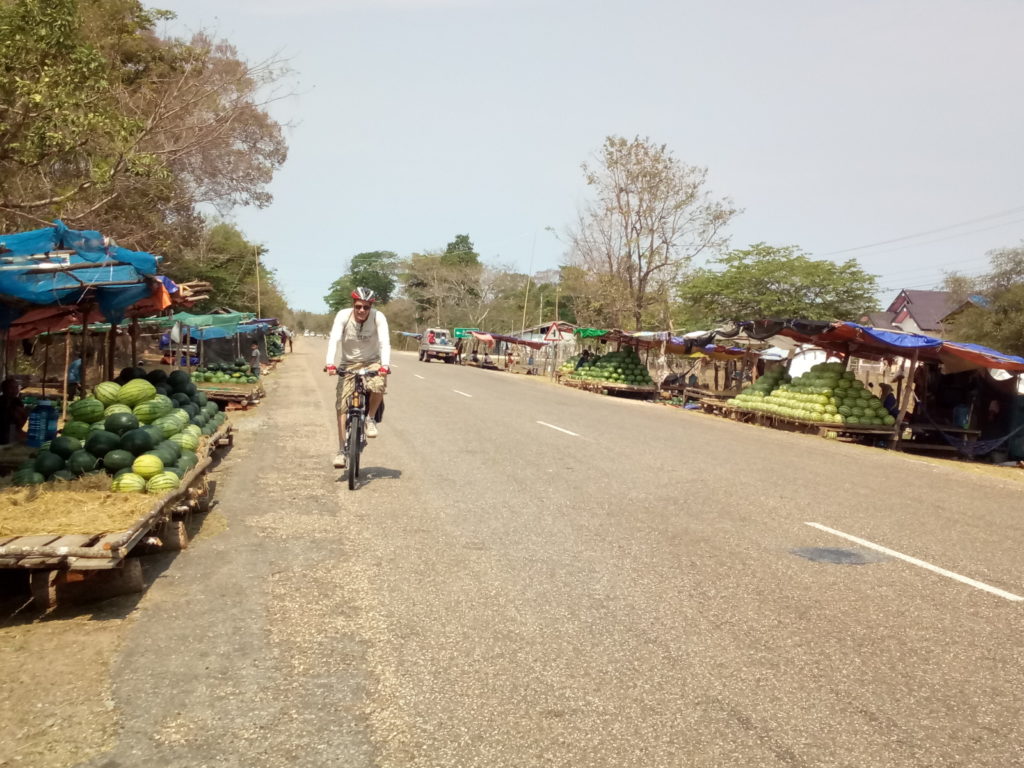It’s time for me to go over the annual list of do’s and don’ts of riding in the heat. As we know, the humidity plays a role by making it seem hotter, and making us sweat more. What can we do to stay safe and continue riding in the heat? There are many articles dealing with this on-line. Educate yourself and find out what works for you. Cyclists have an advantage in that we produce our own breeze, giving us more evaporative cooling. Everyone who’s had to stop at a traffic light during their ride knows this. If you can choose to ride early or late, and in the shade, that’s great. It’s not always an available choice, though.
What about that half-frozen bottle of water? It feels great, but some say it can cause blood vessels to constrict, slowing your body’s ability to cool, like applying too much ice can do. Find what works for you. I feel more refreshed when I drink cold drinks as opposed to hot ones in the heat, but traditional societies the world over insist on drinking warm drinks to make you sweat more. I already sweat plenty, so I think I have that covered. I do have to make sure I recover the electrolytes by using rehydration tablets, powder or drops though, or I’ll get a headache eventually and may even start cramping in the hours after the ride. It can be challenging to drink and even eat enough on long rides (blood flow is diverted from the stomach), so using a hydration pack has been great. I know I drink more with it, taking small sips more frequently. Unfortunately, your body’s efficiency at cooling itself starts to go down with age, so, fellow master’s category riders, sorry about that. For everyone though, find out what works for you and stay safe riding in the heat.

When you acclimatize, the more fit you are, the lower your temperature will be when you start sweating. This cools your core more efficiently. You need to spend a lot of time in a hot environment to really get acclimatized, so all that time spent in air conditioning on your trainer is going to make it more difficult to achieve. Some experts say that if you are already fit, four hot sessions of 60-90 minutes, sweating profusely, will do it. If not so fit, then maybe eight sessions with a rest day between sessions.
One interesting thing I proved during the pandemic from the temperature checking kiosks at work was that sweat, i.e. evaporative cooling, works well to cool the skin. I could ride in to work on a 100 degree day, sweating profusely with towel in hand, and the sensor would record a completely normal temperature on my skin surface. In contrast, those who may have been sitting in their cars before entering the building sometimes recorded elevated skin temperatures and had to wait a few minutes for their skin to cool before being allowed in.

Many have figured out that sun sleeves don’t only lower your skin cancer risk, but also keep you cooler, especially if you wet them down. It may seem counterintuitive, but they really are cooler than not wearing anything on your arms, as they keep the sun off your skin. Light colors and thin fabrics help too. I know people who say they don’t ride to work because they don’t want to arrive sweaty. Some just change into work clothes when they arrive, but I have to wear work clothes to my work appointments. Arriving a little early is important to cool down and not be sweating so much when I start. I keep a small towel in my pannier to mop up with. Also, I find lighter colored printed fabrics hide sweat lines better than solid colors. Choose looser styles and lighter weight fabrics. I use a light over-shirt over my clothes, which I wet down for air conditioning when it’s extra hot. Helmet hair is real though, so you have to find a way to deal with that, either by style or with a dry shampoo. Also, with daily showers you shouldn’t stink even when sweaty. Body odor happens when bacteria on your skin come in contact with sweat. Our skin is naturally covered with bacteria. When we sweat, the water, salt and fat mix with this bacteria and can cause odor. The odor can be bad, good or have no smell at all. For more than you ever wanted to know about b.o., read this.
